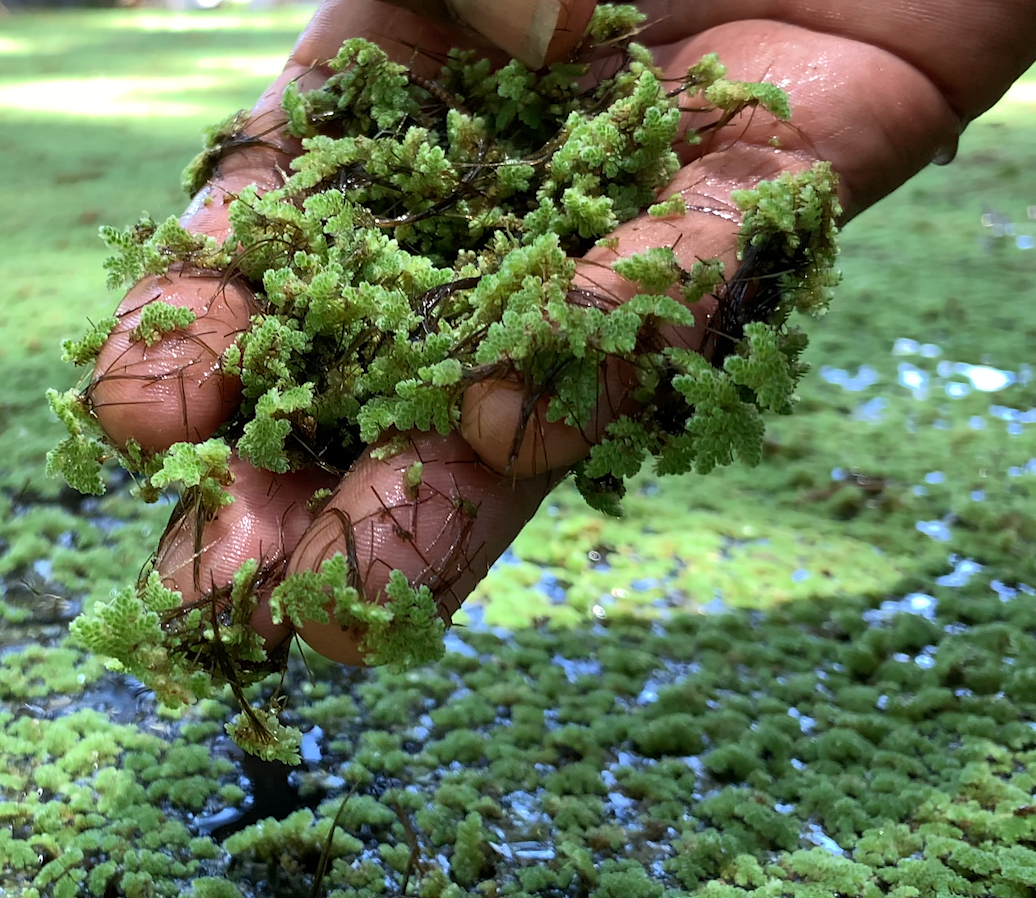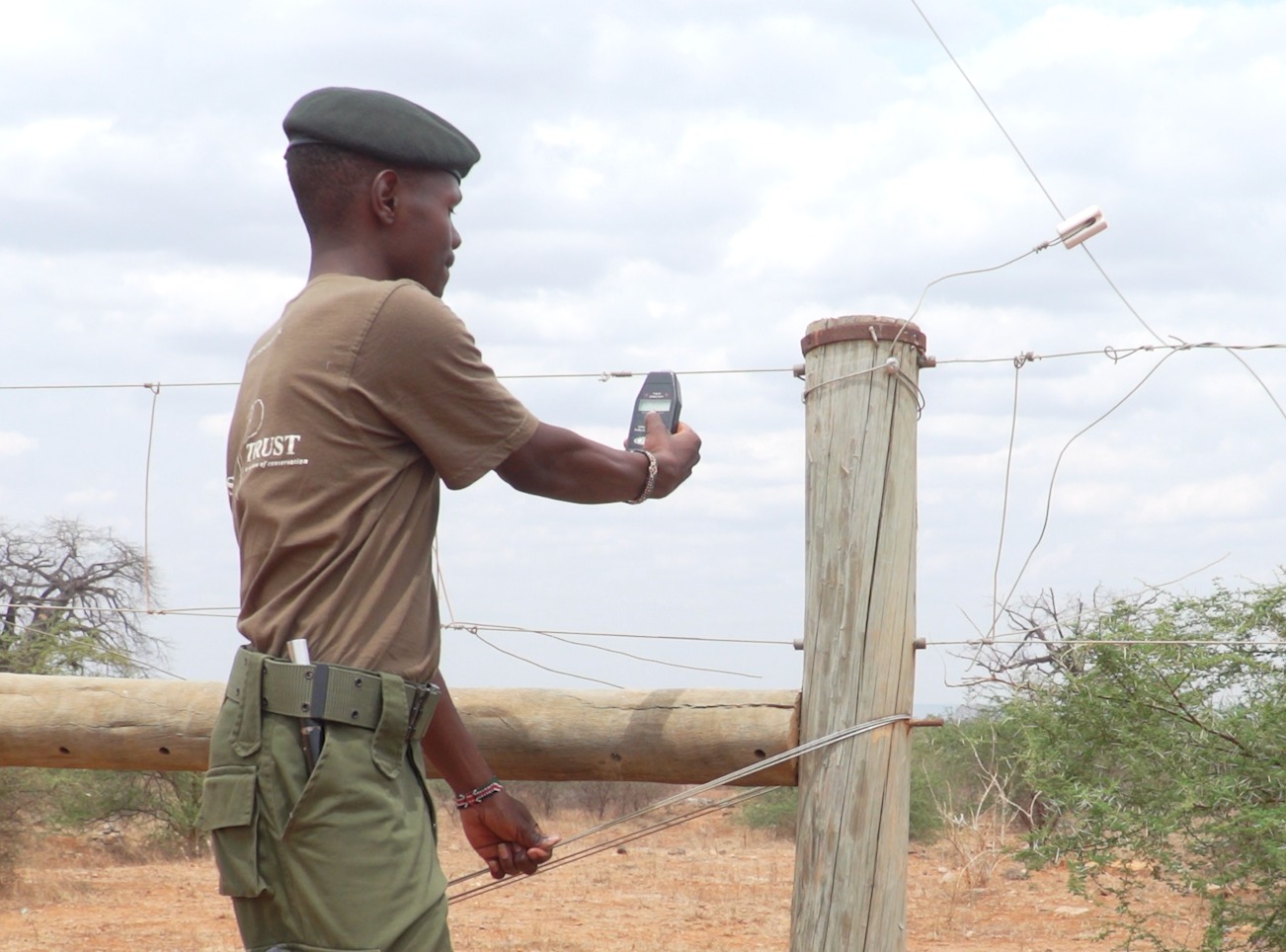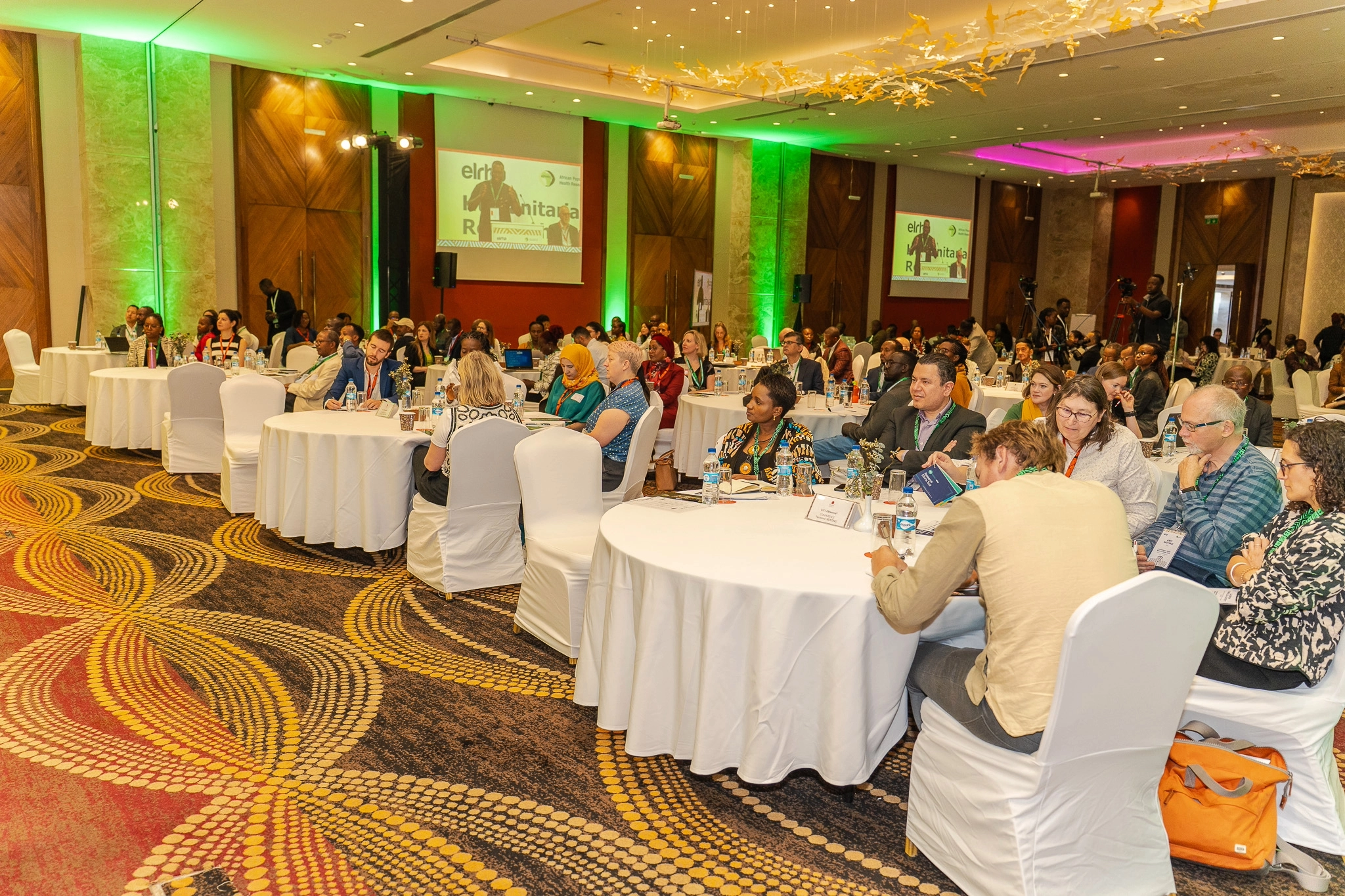
Humanitarian health forum in Nairobi confronts climate’s growing toll on global health
Global leaders in humanitarian health convened in Nairobi on Wednesday for the 2025 Humanitarian Health Research Forum. The three-day meeting, co-hosted by the African Population and Health Research Center (APHRC) and Elrha, brought together over 150 researchers, policymakers, and humanitarian experts seeking evidence-based solutions to climate-induced health emergencies.
Fatima Mohammed Cole, Deputy Regional Director for UNHCR, opened the forum with a stark warning.
“Rising temperatures, extreme weather events, and changes in the distribution of disease vectors all contribute to increased mortality and morbidity. Climate change is expected to cause about 250,000 additional deaths per year from malnutrition, malaria, diarrhea, and, of course, heat stress.”
She added that climate change causes forced displacement and contributes to mixed and onward movements, particularly in Eastern Africa.
“Previously, large swathes were malaria-free, but with warmer temperature in these areas, we are detecting malaria due to shift of the mosquitoes to those areas. Hopefully, we will see adoption to climate data in health interventions gaining traction as more evidence generated by research becomes more available.” Cole said.
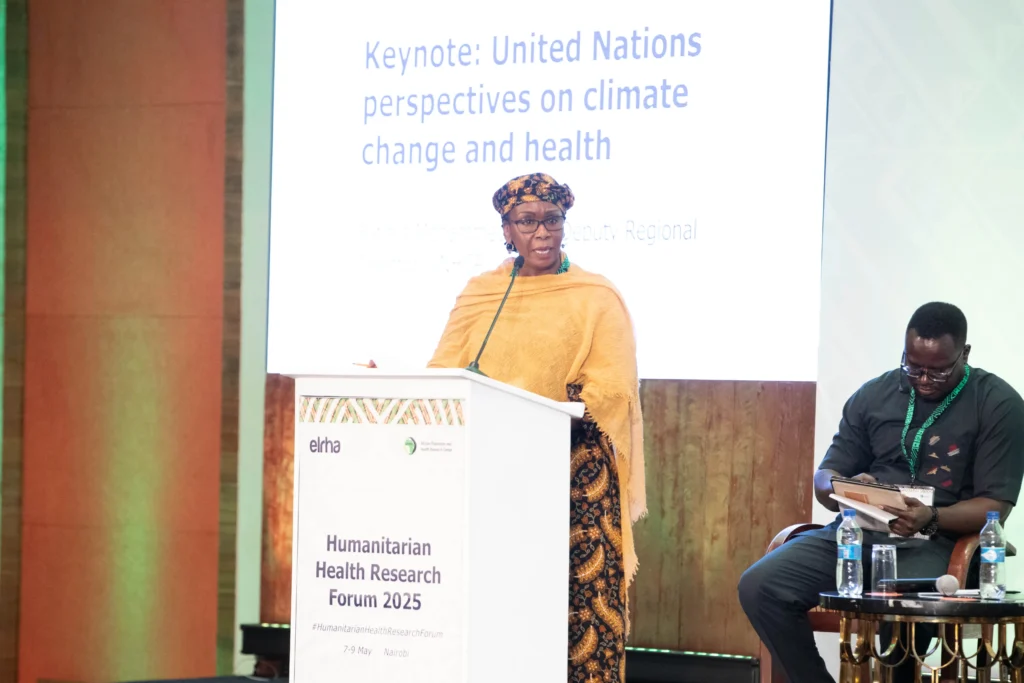
In Kenya’s Turkana County, the health consequences of extreme weather are already a lived reality. The region has grappled with drought and flooding. Extreme weather exposed the region’s vulnerabilities in food security, water access, and disease control.
John Erus, Deputy Governor of Turkana County, sought solutions.
“We worked with the University of Nairobi and the University of Oxford through the REACH Programme to develop a system that monitors all the water aquifers in Turkana, their recharge, and how they impact and help us to extract water for multiple uses. We are looking at integrated energy and livelihoods, ecosystem restoration and food systems, and pastoral resilience.”
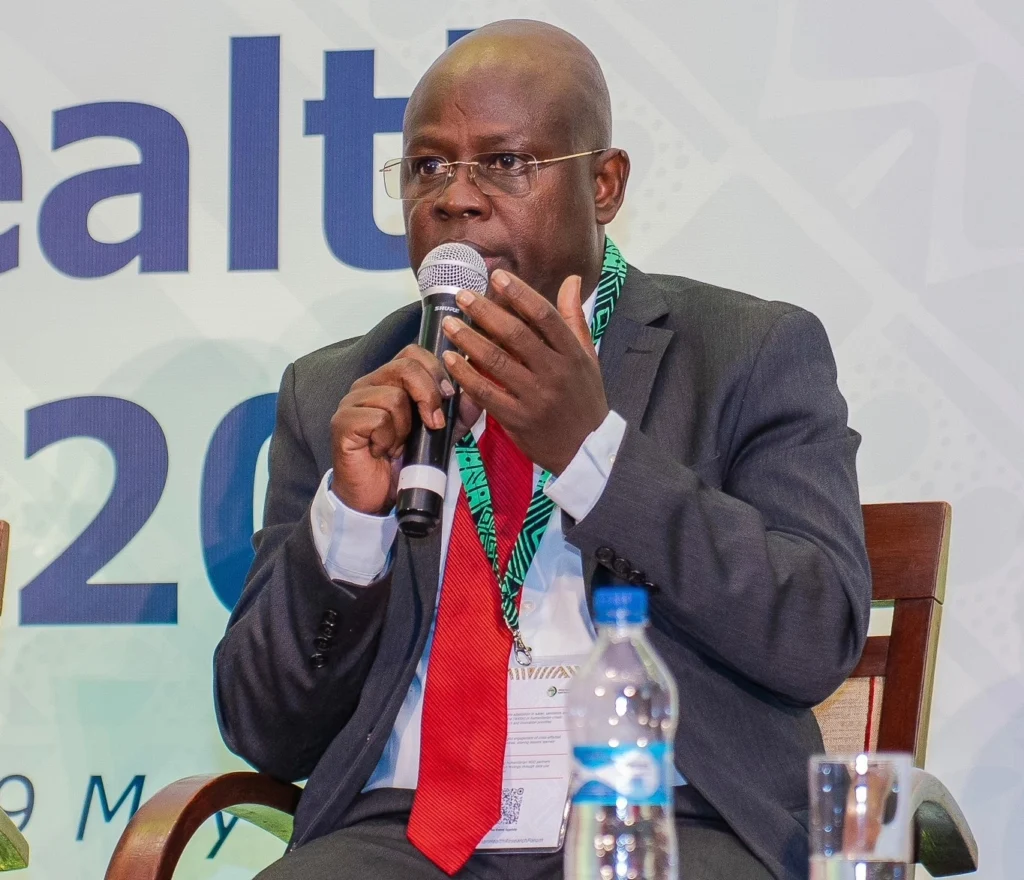
Throughout the forum, speakers highlighted how the climate crisis is accelerating the spread of diseases like malaria and cholera, while also increasing malnutrition and mental health disorders.
“When climate change happens, we find that the kind of foods that we get don’t have all the nutrients we require,” Beatrice Kiage, a research scientist at APHRC, said. “To the proteins, the iron, the zinc, the levels fall off, and that impacts the children. Climate change has an impact on the mental health of the youth.”
Kiage also stressed the importance of community-led solutions.
“Whatever interventions you’re coming up with, they have to be really what the community needs. But if you come in and you’re not co-developing interventions with them, you’re not co-designing with them, co-implementing with them, it will just remain the thing.”
The role of youth and early-career scientists in Africa also came into focus, as many face significant barriers in participating in global research.
Etse Yawo Dzakpa, a postdoctoral fellow in climate and health at the African Institute for Mathematical Sciences Research and Innovation Centre (AIMS), said,
“Having collaborative funding can help young researchers to be involved and learn from expert scientists, learn from other countries, and then implement in their own countries.”
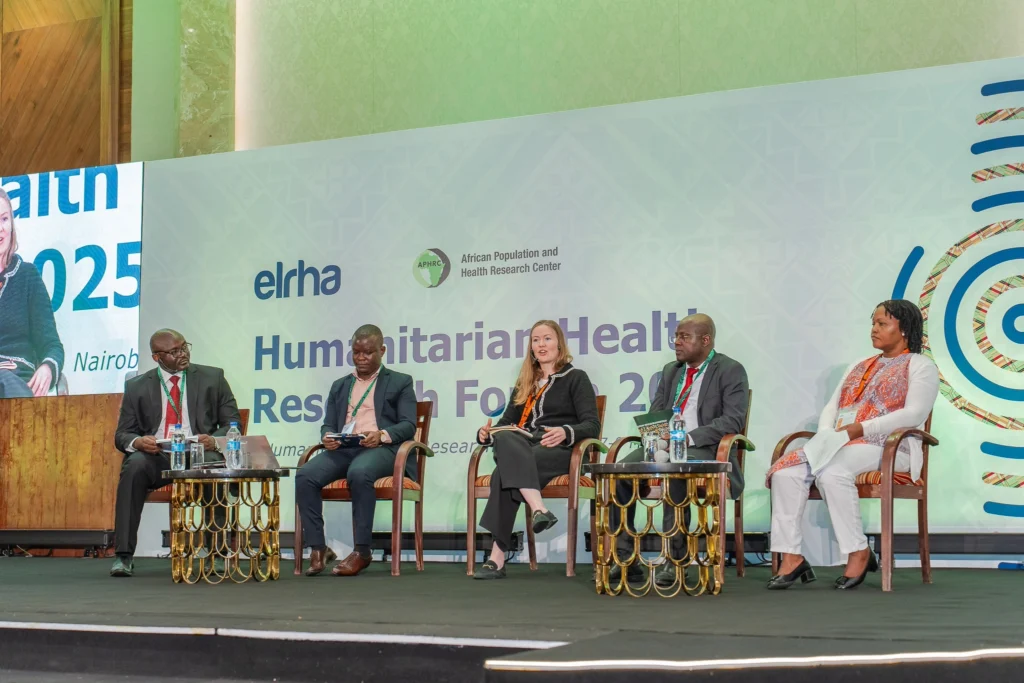
Elizabeth Wambui Kimani-Murage, Senior Research Scientist at APHRC, reinforced the need to root research in the realities of affected communities.
“We engage communities so that we understand what their needs and priorities are, and the local knowledge, so that we can include local knowledge in the research, and also be able to understand the local solutions. We need to do research that is policy relevant in terms of national, regional, and global policies.”
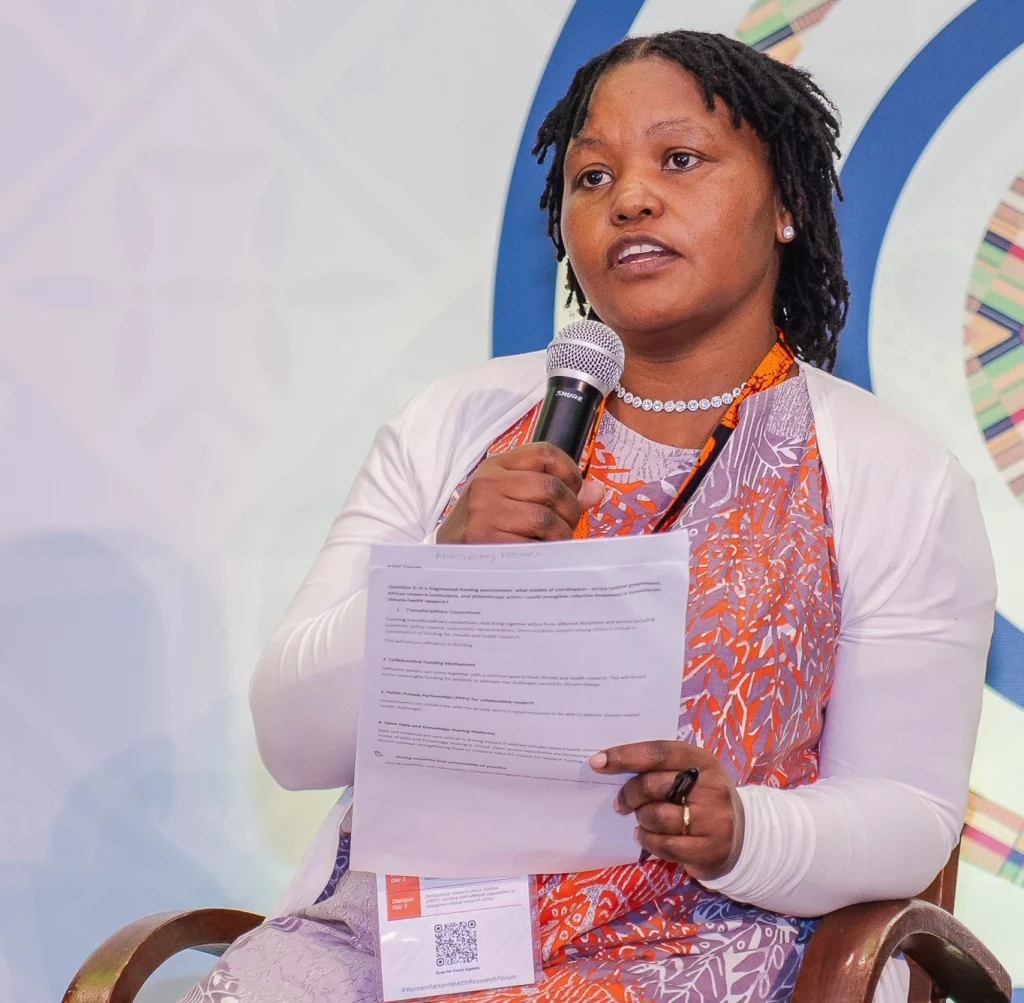
Kai Hopkins, Elrha’s Head of Research Initiatives, highlighted how the crisis transcends science and affects humanitarian systems more broadly.
“Climate is driving some of these health concerns, but it’s also driving the humanitarian context that, in turn, brings with it, various health challenges. We’re trying to engage not just the research community here, but also policy makers, humanitarian practitioners, those who we want to understand, to absorb and to impact the findings that we’ve been generating through our work.”
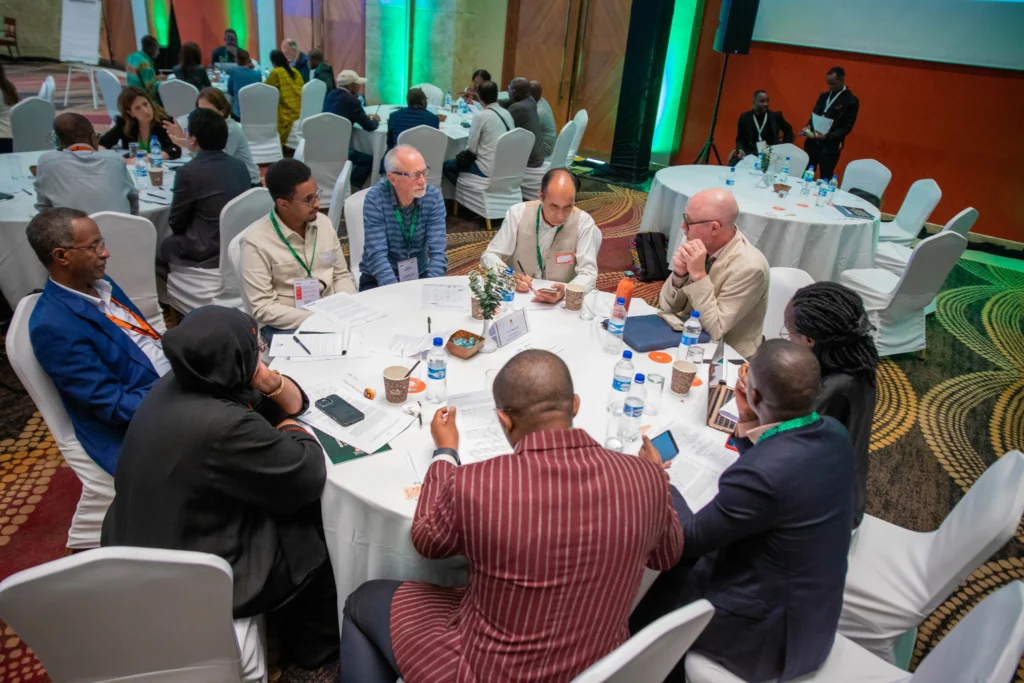
As calls for government action intensified, Alastair Ager, Chair of the Research for Health in Humanitarian Crises (R2HC) Advisory Group, urged African governments to support domestic research capacity.
“It’s important that governments begin to make provisions, not just in terms of preparation, but also in terms of supporting the research based in their countries to be able to support evaluation of effective adaptation.”
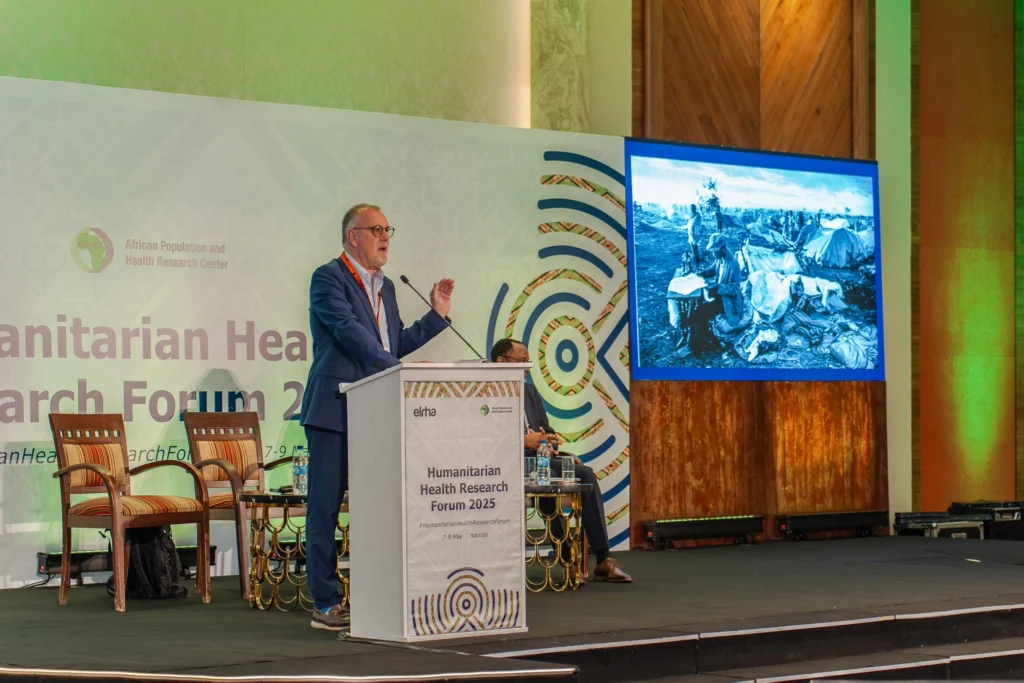
With the Nairobi forum continuing through Friday, delegates expressed cautious optimism that coordinated, inclusive research can drive policy and action at the scale needed to protect the world’s most vulnerable populations from climate-driven health threats.




